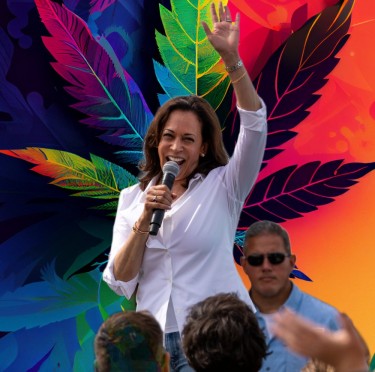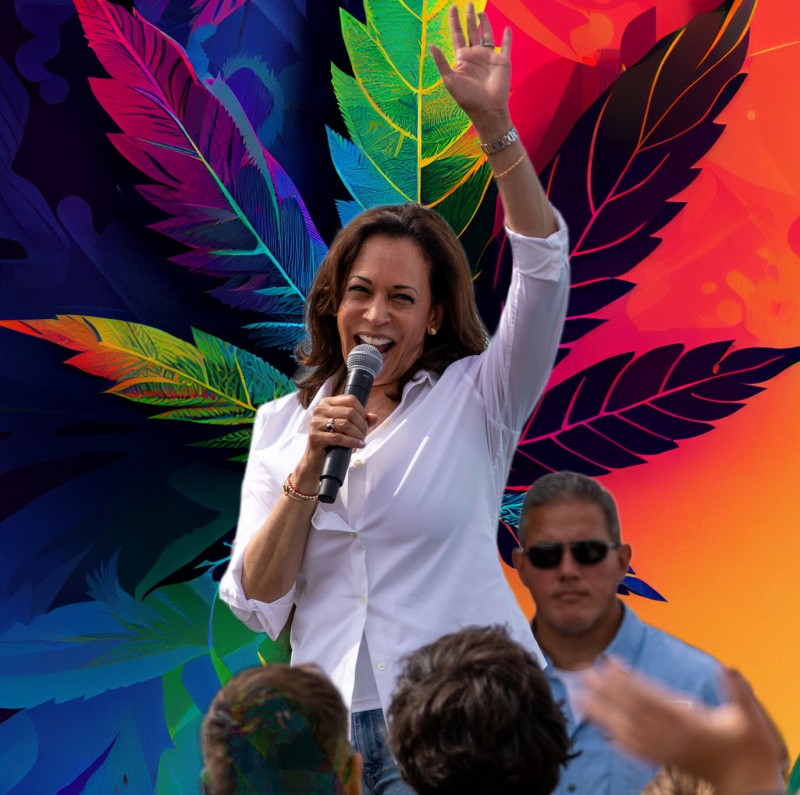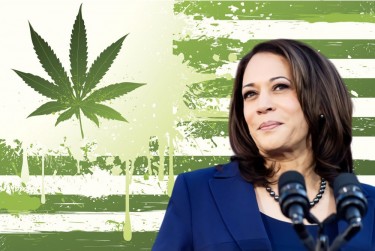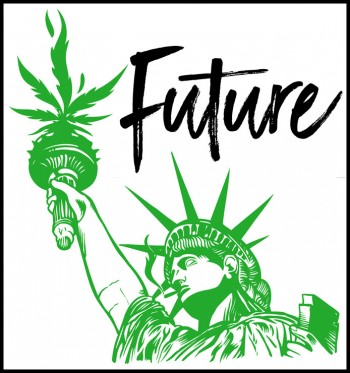
Why you shouldn’t base your vote on Harris’ Cannabis Stance
As a long-time observer of the political circus, I've seen my fair share of grand promises and lackluster deliveries. It's an age-old dance: politicians, with their eyes on the prize, will say just about anything to secure your vote. They'll promise the moon, the stars, and a side of universal healthcare, only to serve up a watered-down version of their campaign pledges once in office. It's not necessarily malicious; it's just the nature of the beast we call politics.
Now, with Biden stepping aside and rumors swirling about his health, all eyes are on Kamala Harris as the potential next Democratic presidential candidate. I've been hearing a lot of chatter, especially in cannabis circles, about throwing support behind Harris if she promises to legalize weed. And I get it, I really do. Cannabis reform is a critical issue for many of us.
But here's where I need to pump the brakes and offer a word of caution: basing your vote on a single issue, especially one as prone to political flip-flopping as cannabis legalization, is a risky game. Remember the Biden-Harris ticket's promises of criminal justice reform? How many people actually walked free from cannabis possession charges? The answer might disappoint you.
Before you pin all your hopes on Harris's cannabis stance, let's take a closer look at her history with the issue and why political promises, especially when it comes to weed, should be taken with a hefty dose of skepticism. After all, in the world of politics, today's firm stance could be tomorrow's convenient pivot.
A Deep Dive on Harris
As we dive deep into Kamala Harris's political career, it's a tale of evolving stances and convenient shifts that mirror the changing tides of public opinion on cannabis. Let's start at the beginning, shall we?
During her tenure as California's Attorney General from 2011 to 2017, Harris oversaw the conviction of nearly 2,000 people on marijuana-related charges. That's right, the same woman now championing cannabis reform was once responsible for putting people behind bars for the very thing she now supports legalizing. It's a stark reminder of how quickly political winds can change – or how quickly politicians can change with them.
Fast forward to the 2020 Democratic primaries, and we see a different Harris. Despite her initial buzz as a top contender, her campaign fizzled out faster than a poorly rolled joint. She dropped out before the Iowa caucuses, trailing far behind other candidates. It was a humbling experience that likely prompted some serious strategizing about her political future.
Then came the VP selection. Suddenly, Harris found herself on a ticket with Joe Biden, a man who had built much of his early career on being tough on drugs. It's worth noting that Biden, too, has done some impressive political gymnastics on this issue. From being a key architect of punitive drug laws to now pardoning federal marijuana possession convictions, Biden's evolution mirrors Harris's own pivot.
As a Senator, Harris did introduce pro-cannabis legislation. The Marijuana Opportunity Reinvestment and Expungement (MORE) Act was a step in the right direction, aiming to decriminalize marijuana at the federal level. But let's be real – introducing a bill is a far cry from getting it passed, especially when you're no longer in the legislative branch.
Recently, Harris has been vocal about cannabis reform. She's called for speeding up the reclassification of marijuana and has stated that "nobody should have to go to jail for smoking weed." It's a far cry from her days as AG, isn't it?
But here's where the rubber meets the road – or should I say, where the joint meets the lips. Despite all the big talk from the Biden-Harris administration about reform, what we've actually seen is disappointingly little. In four years, with a Democratic majority, they've failed to pass any significant cannabis legislation. Instead, we're left with a proposal to reschedule cannabis to Schedule III – a move that feels more like a bone thrown to Big Pharma than true reform for the people.
And now, with the rescinding of the Chevron Doctrine, even this watered-down attempt at reform is likely to be tied up in legal battles for years. It's a bureaucratic nightmare that does little to address the real issues faced by cannabis users and those imprisoned for marijuana offenses.
Here's the kicker – this isn't even the reform that most cannabis advocates want. We're not looking for a slight shuffling of bureaucratic categories. We want full descheduling. We want cannabis treated like the plant it is, not a controlled substance. Anything short of that is just maintaining the status quo with a slightly friendlier face.
So, when we look at Harris's cannabis stance, let's not forget this context. It's a stance that has conveniently evolved with public opinion, but still falls short of meaningful change. It's a reminder that in politics, what's promised on the campaign trail often bears little resemblance to what's delivered in office.
Stop Voting for Single Issues
As someone who's been around the political block a few times, I've seen far too many people fall into the trap of single-issue voting. It's understandable - we all have causes close to our hearts, issues that ignite our passions. For some, it's cannabis legalization; for others, it might be gun rights or abortion. But here's the hard truth: voting based on a single issue is like buying a car solely because you like its color.
Politicians, my friends, don't exist in a vacuum. They're part of a larger system, a complex web of party politics, special interests, and power dynamics. When you vote for a candidate based on their stance on cannabis, you're not just getting their weed policy - you're getting the whole package. And let me tell you, that package often includes a lot of things you might not be so keen on.
Take a step back and look at the bigger picture. Both major parties, despite their apparent differences, often align on issues that directly impact our daily lives. They're both pro-war, pro-big pharma, pro-big banks. They might squabble over social issues, but when it comes to the core economic and foreign policies that shape our world, they're often two sides of the same coin.
This is why we desperately need more diversity in our political system. The two-party structure is a relic that's long outlived its usefulness. It pits American against American, reducing complex issues to simplistic "us vs. them" narratives. It's a system that thrives on division, not unity.
But here's where I really want you to pay attention: if you want to see real change, start local. National elections might get all the glitz and glamour, but the nitty-gritty work of democracy happens in your town halls, your city councils, your state legislatures. That's where policies that directly affect your daily life are hammered out. Want to see cannabis reform? Start by engaging with your local government.
The folks in Washington? They're in a different world. They're surrounded by lobbyists, insulated from the day-to-day struggles of average Americans. They're more likely to hear the concerns of a pharmaceutical CEO than those of a small-time cannabis grower or a patient seeking alternative medicine.
So here's my advice: break free from party loyalty. Look at the facts, examine the principles behind the policies. Most importantly, judge politicians not just by their words, but by their actions. How often do they follow through on their promises? How consistent are they in their principles?
Critical thinking is key here. Don't just swallow what the media or the politicians are feeding you. Question everything. Analyze. Compare. And remember, your vote is precious - it's your voice in this democracy. Don't give it away based on a single issue or a catchy slogan.
In the end, politics is about the big picture. It's about the kind of society we want to live in, the values we want to uphold. So the next time you're in that voting booth, think beyond the single issue. Look at the whole cake, not just the cherry on top. Your future - our future - depends on it.







